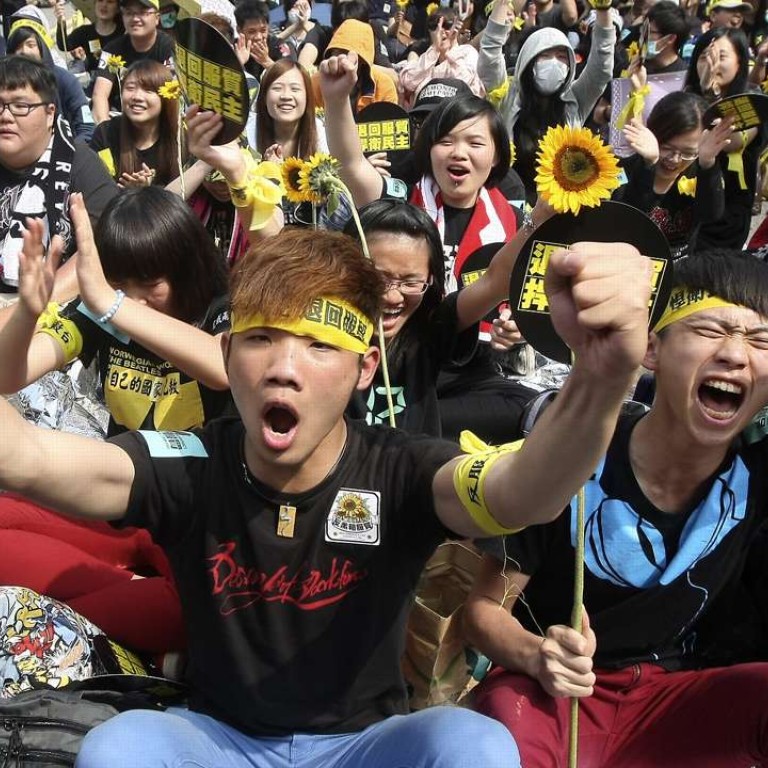
Beijing planning new approach to Taiwan affairs
Mainland to focus on young people and small businesses after earlier efforts failed to advance its reunification agenda
Beijing has been reviewing its Taiwan policies after they failed to bear fruit and is considering a shake-up of the people in charge of cross-strait relations, sources and experts say.
But analysts in Taiwan say that between 2008 and last year Beijing lost its best chance to engage young Taiwanese and realign their mindset about the island’s historical link with the mainland.
Beijing would have a difficult time turning things around if it believed increasing exchanges with Taiwanese youths and small and medium-sized enterprises would work wonders to solicit their support, they said.
The new approach has echoes in Beijing’s approach to Hong Kong, where young people increasingly identify themselves as Hongkongers rather than Chinese 20 years after the former British colony’s return to Chinese sovereignty.
After losing hope in the efficacy of engagement with Taiwan’s independence-leaning Democratic Progressive Party (DPP) government and the mainland-friendly opposition Kuomintang (KMT), as well as big Taiwanese businesses that have vast interests on the mainland, top leaders in Beijing now see appeals to young Taiwanese and grassroots businesses as the best bet for paving the way for future cross-strait reunification.
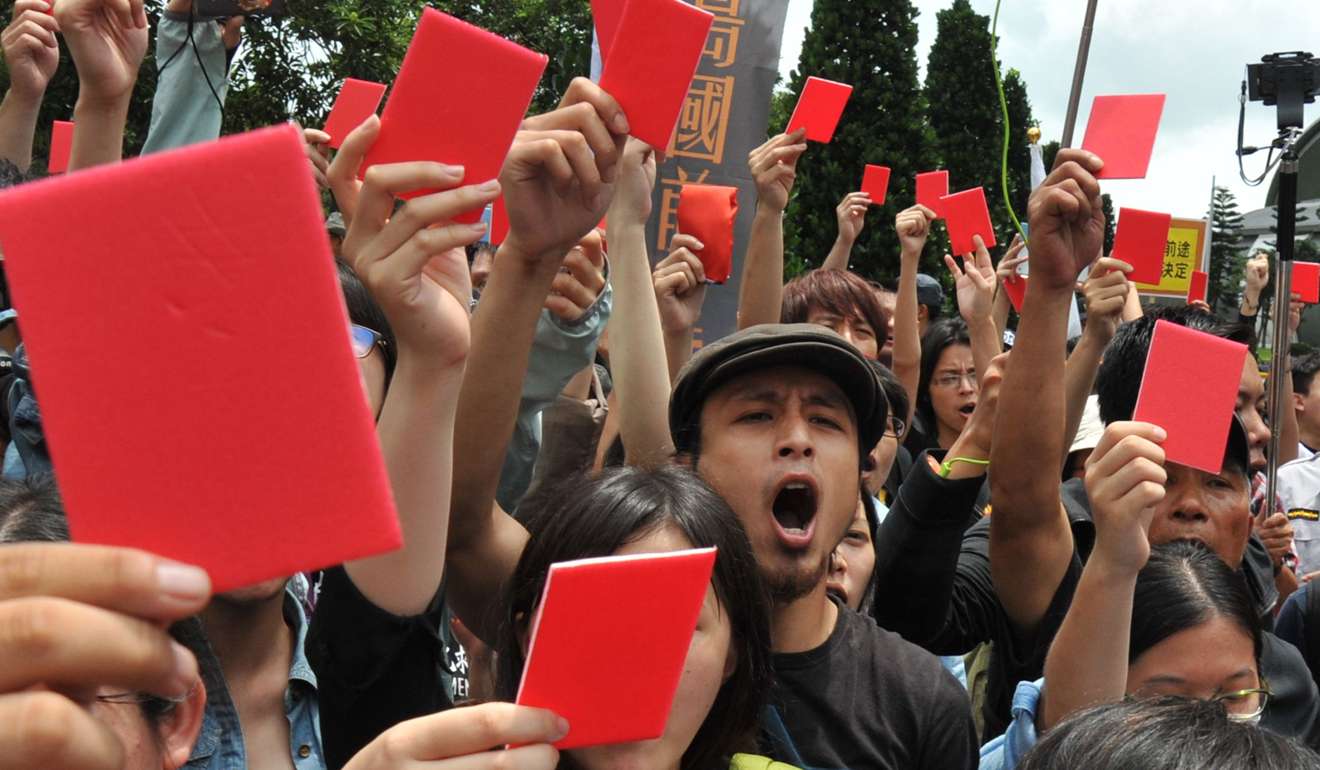
“I understand the central authorities are seriously considering a change in their policy towards Taiwan, with some approaches definitely different from the previous one,” Major General Peter Huang Zhicheng, a member of China’s top political advisory body, told the South China Morning Post in March.
A source close to the State Council’s Taiwan Affairs Office, Beijing’s top government agency for handling cross-strait issues, said the mainland side might scale down its decade-long reliance on the inter-party dialogue between the Communist Party and KMT to deliver preferential policies to the Taiwanese public and would seek instead to engage different walks of life in Taiwan through local, civilian organisations.
The source added that a previously low-profile political organisation on the mainland would play a bigger role in implementing the new Taiwan policies.
Jiang Erxiong, a vice-president of the All-China Federation of Taiwanese Compatriots (ACFTC), pledged on the sidelines of the annual meeting of the National People’s Congress (NPC) in Beijing in March that the federation would spare no effort in helping young Taiwanese study, work, start businesses and live on the mainland.
“The ultimate goal of what we’re doing is to make the door [between Taiwan and the mainland] open wider and wider, so as to attract more and more young Taiwanese to come and live here in an easier and more comfortable manner,” Jiang said.
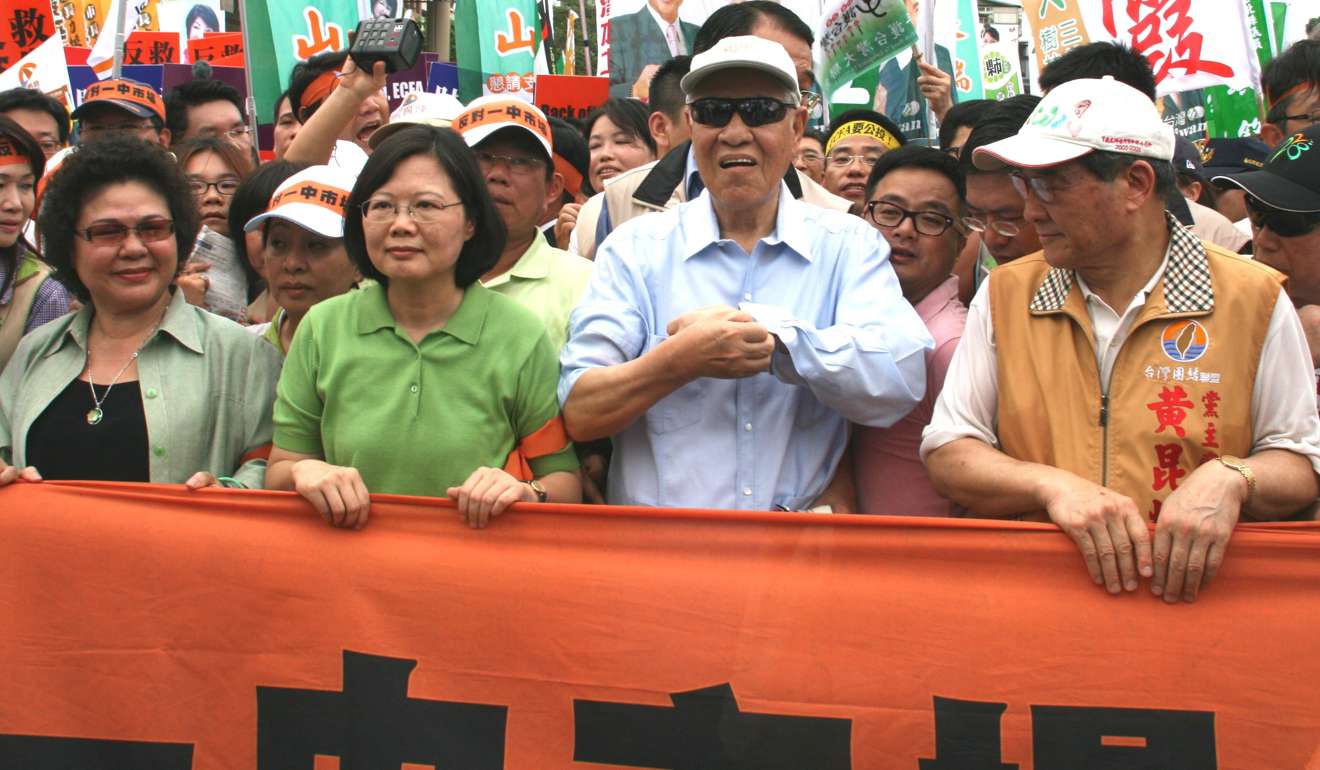
But such an approach now faced unprecedented challenges, analysts in Taiwan said, because young Taiwanese had been groomed in a “Taiwan-centric” culture and identified the island as their home country and China as a giant neighbouring state.
Since the pro-independence Lee Teng-hui became Taiwan’s first directly elected president in 1996, the island has changed dramatically, with freedom of speech and a reassessment of the island’s historical link with the mainland, which had been stressed by late KMT leader Chiang Kai-shek after he set up an interim government in Taiwan following the Communist defeat of his Nationalist forces in the civil war that ended in 1949.
Professor Wang Kung-yi, an international relations and strategic studies specialist at Tamkang University in Taipei, said former Taiwanese president Chen Shui-bian, of the DPP, took a further step between 2000 and 2008 when he ordered the revision of history and geography textbooks.
“That turned China into part of world history and geography and singled out the individuality of Taiwan,” Wang said.
Chen’s successor, Ma Ying-jeou of the KMT, adopted a policy of engaging Beijing but did little to help change the situation during his time in office between 2008 and 2016, Wang said, partly because he was concerned about a backlash among Taiwanese society and partly because of the rapid growth of a Taiwan-centric mindset among those aged between 18 and 21.
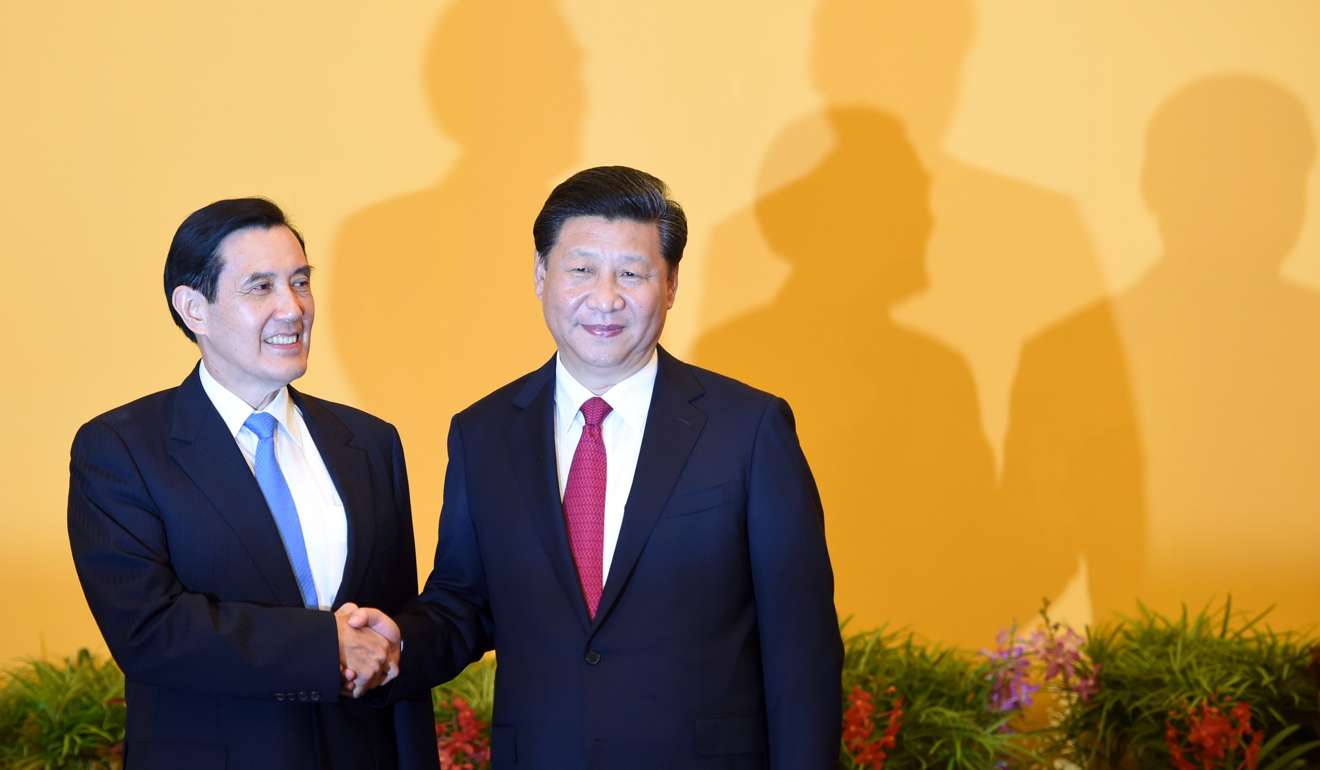
He said today’s youngsters were unlike their predecessors, who supported Taiwanese independence because of their political beliefs, and instead saw “Taiwan as their natural home country and China as just another state”.
Viewing mainland China as an oppressor and accusing the Ma government of failing to protect Taiwanese interests, a group of students, in collaboration with some civic groups, occupied Taiwan’s legislature for three weeks in 2014, demanding revision of a trade bill the Ma government had signed with Beijing and the enactment of a new bill to oversee the signing of future cross-strait agreements.
Analysts said the protest, which became known as the sunflower movement after the symbol chosen by the students, best reflected the mindset of the younger generation.
“Because independence is no longer their concern, this explains why pro-independence activities have dwindled sharply since Tsai [Ing-wen, of the DPP] became president in May last year, as these people care only about whether the rights and interests of Taiwanese people are infringed,” said Sun Yang-ming, vice-president of the National Policy Foundation, which is affiliated with the KMT.
Instead of fighting for Taiwanese independence, today’s youngsters paid attention to civil and human rights, and to social and national justice, Sun said, adding that some of the mainland’s moves to put pressure on Taiwan, including wooing away its diplomatic allies, only served to make it more difficult for Beijing to engage with young Taiwanese.
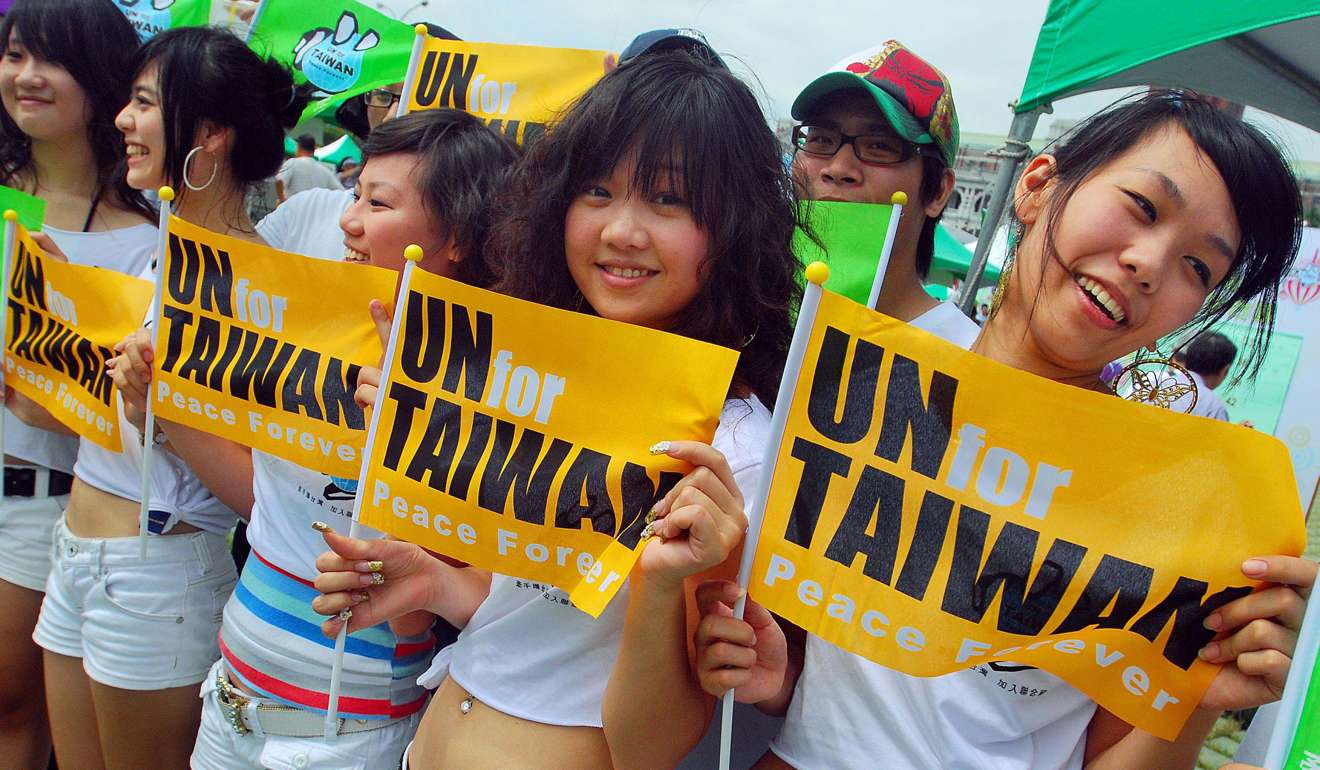
He said the Ma government could have done more to readjust young people’s mindset by re-establishing the historical link between the two sides, and it was a bit late for Beijing to focus on wooing Taiwanese youths.
“But to do it late is better than doing nothing,” he said.
Lee Chih-horng, a research fellow at the Singapore-based Longus Institute of Development and Strategy, said that while it appeared difficult to change the Taiwan-centric mindset of young Taiwanese, all Beijing needed was patience and to continue active exchanges with them.
“Unlike the older generation of independence supporters, members of the young generation are not as firm in their beliefs, meaning they could change course after they graduate from schools and spend time finding jobs,” Lee said.
With more people in Taiwan complaining about the lack of pay rises in recent years, young people would look to the mainland for betters job and pay, Lee said.
“This could be the reason Beijing has taken no drastic action against the Tsai government despite its refusal to accept the one-China principle,” Lee said.
Beijing has suspended communication and exchanges with Taipei since June due to that refusal.
A former sunflower movement supporter, who requested anonymity, admitted that Taiwan’s hard economic times had prompted him to find work on the mainland.
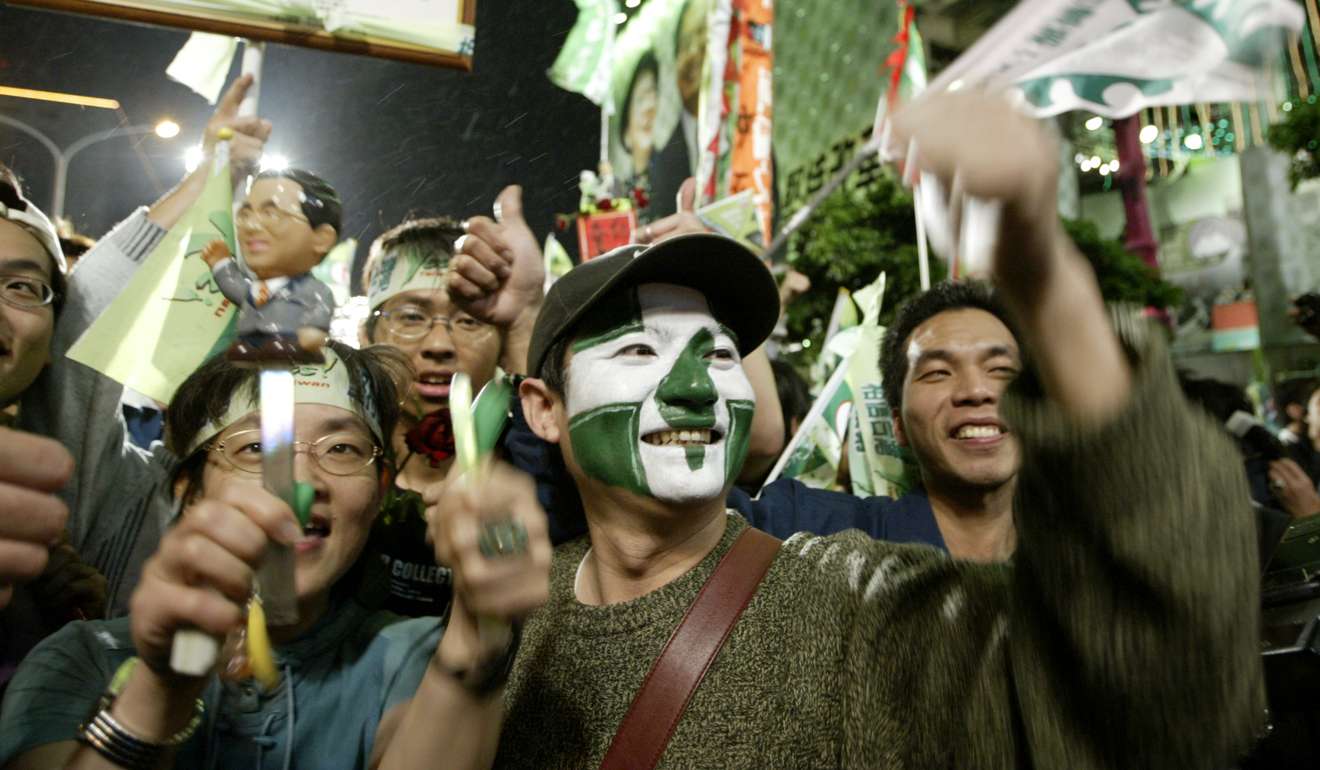
“I tried hard to look for a job after I completed my draft training in the military in the past year or so, but all I got were low-pay offers, mostly as a low-level office clerk on no more than NT$22,000 (US$725) a month,” said the 22-year-old graduate, who majored in industrial design. “So I have decided to work in Shanghai with a commercial design company where I will start on the equivalent of NT$32,000.”
He said he got the offer through a Taiwanese relative working in Shanghai.
There are now about half a million Taiwanese working or living on the mainland, with around 17,000 Taiwanese students studying there.
At the annual session of the Chinese People’s Political Consultative Conference in Beijing in March, the body’s chairman, Yu Zhengsheng, called on delegates to engage Taiwan’s grass roots and youth.
He also urged the political advisers to help promote study tours and further study on the mainland to Hong Kong youths.
Young Hongkongers, like young Taiwanese, increasingly view themselves as something other than Chinese, with a University of Hong Kong survey last year finding that 86 per cent of those aged between 18 and 29 were not proud to be Chinese citizens.
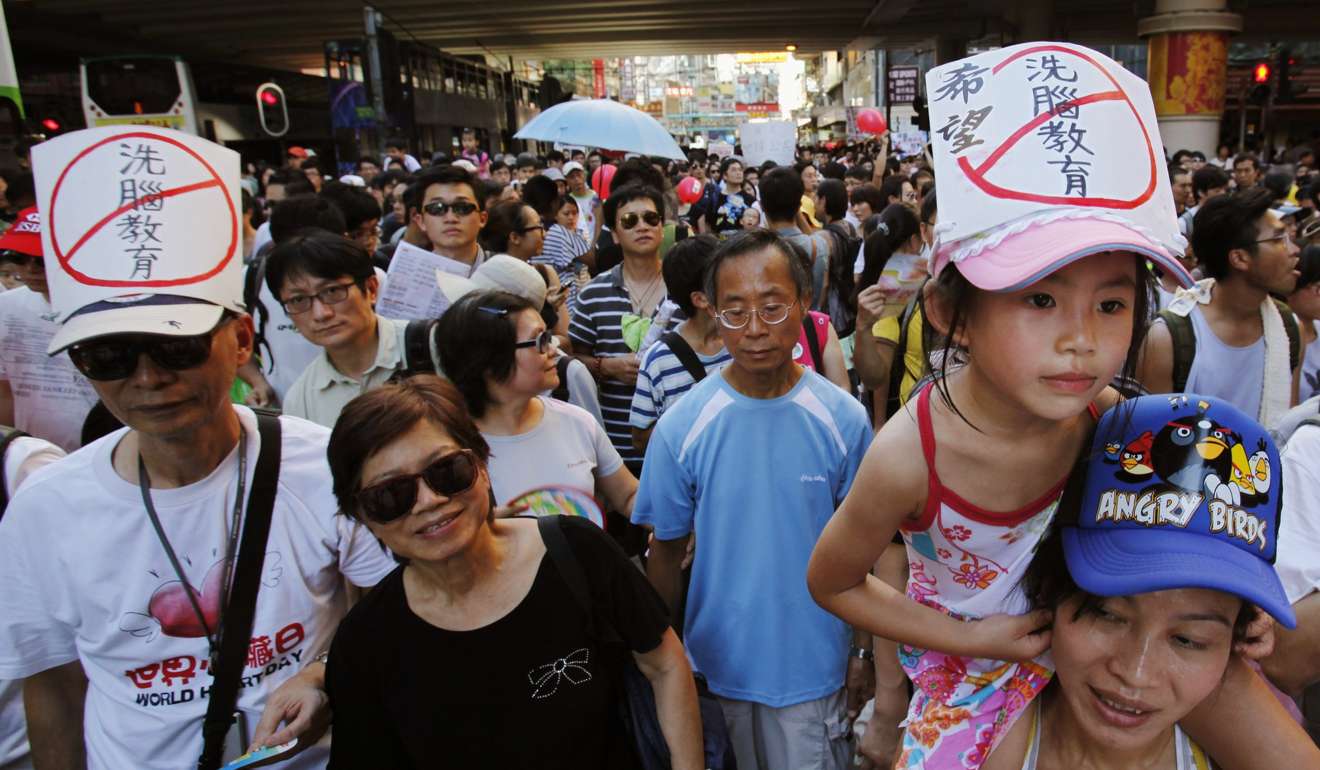
A proposal to include national education in Hong Kong secondary school curriculums sparked mass protests in 2012, with many student leaders of that campaign going on to lead the even bigger Occupy Central “umbrella movement” in 2014 in protest at Beijing’s restrictions on political reform in Hong Kong.
Besides supporting quasi-military, uniformed groups for teenagers in the city, the city’s government has also been discussing how to boost the study of Chinese history in secondary schools. It was dropped as a stand-alone subject in curriculum reform initiated in 2000, three years after Hong Kong’s return to Chinese sovereignty.
Wang said Beijing would find engaging with Taiwan’s small and medium-sized businesses easier than winning over its youths.
“In the past, the mainland authorities dealt mostly with big enterprises, resulting in those companies taking all the resources,” he said. “Approaching the small and medium-sized enterprises in Taiwan should improve this situation, allowing the smaller companies to enjoy profits, which naturally would help win their support.”
In March, at a group discussion session of NPC deputies handpicked by Beijing to represent Taiwanese people, ACFTC president and delegation head Wang Yifu said that even though cross-strait ties had been rocky, he hoped they would start to warm this year.
“I believe and expect there will be new prospects for cross-strait relations in the wake of the party’s 19th national congress [this autumn],” he said.


